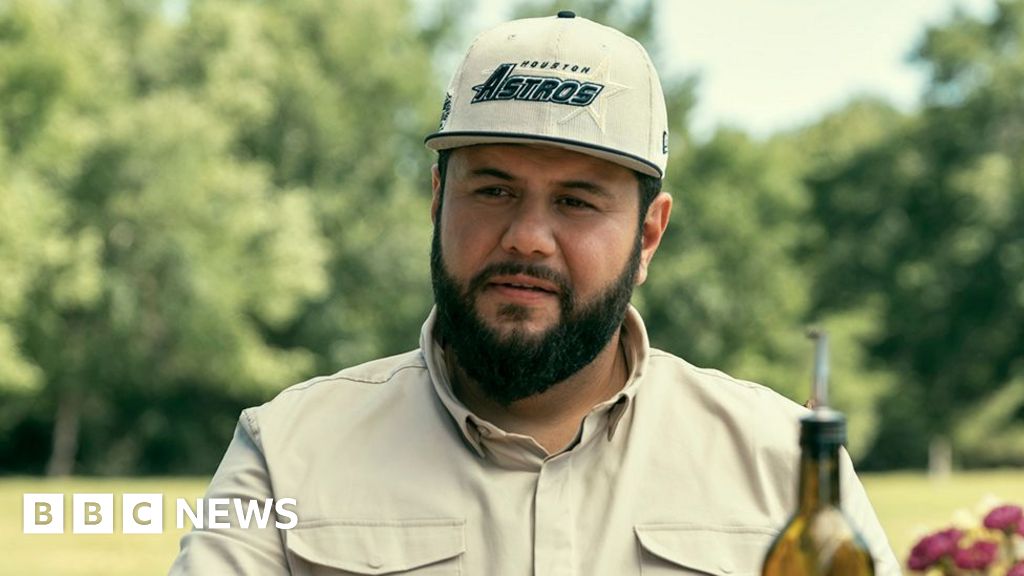
Frenchwoman Gisele Pelicot, the victim of an alleged mass rape orchestrated by her then-husband Dominique Pelicot at their home in the southern French town of Mazan, talks to journalists, surrounded by relatives and her lawyers, after the verdict in the trial for Dominique Pelicot and 50 co-accused, at the courthouse in Avignon, France, December 19, 2024. REUTERS/Manon Cruz
Jean-Pierre Marechal, a
Dominique Pelicot
copycat, has been sentenced to 12 years in prison for drugging and raping his own wife.
Five judges convicted Dominique Pelicot of the aggravated rape of his wife,
Gisele Pelicot
. The Frenchman drugged his wife over a period exceeding a decade and invited strangers to rape her. A trial was held for 51 men, including Dominique Pelicot, most of whom were found guilty of aggravated rape or aggravated sexual assault. Among the convicted is 63-year-old Jean-Pierre Marechal, who received a 12-year sentence despite prosecutors calling for 17 years. However, he was not accused of raping Gisele Pelicot.
What is Jean-Pierre Marechal guilty of?
Marechal is the only convict who was not accused of raping Gisele Pelicot. Instead, he was found guilty of associating with Dominique Pelicot and copying his crimes. Reportedly, Marechal drugged his own wife and invited strangers to rape her, including Pelicot. According to the BBC, Marechal admitted during the trial that he had followed Dominique Pelicot’s lead and committed similar crimes, drugging his wife for five years. He was convicted of attempted rape and aggravated rape of his wife.
“I deserve it”
“I regret my actions. I love my wife,” Marechal said in court during the trial, adding that he would never have committed these crimes without Dominique Pelicot’s influence. “If I had not met Mr Pelicot, I would never have committed this act. He was reassuring, like a cousin,” he told the court. “I’m in prison, and I deserve it,” he continued, adding: “What I did is appalling. I’m a criminal and a rapist.”
Who are the other convicts?

Frenchwoman Gisele Pelicot, the victim of an alleged mass rape orchestrated by her then-husband Dominique Pelicot at their home in the southern French town of Mazan, leaves the courthouse surrounded by French police after the verdict in the trial for Dominique Pelicot and 50 co-accused, in Avignon, France, December 19, 2024. REUTERS/Alexandre Dimou
In addition to Dominique Pelicot and Jean-Pierre Marechal, 49 other men were convicted in the Gisele Pelicot case for aggravated rape or aggravated assault. Only one individual among the accused was acquitted of rape and attempted rape. Saifeddine
Ghabi
was, however, found guilty of sexual assault. The French city of Avignon has recently become the centre of one of the most shocking legal cases in the nation’s history. Dominique Pelicot, a 72-year-old man, was sentenced to 20 years in prison for orchestrating the prolonged and systematic sexual assault of his former wife, Gisèle Pelicot. Alongside him, 50 other men received varying sentences for their roles in the crimes—a harrowing tale that has left the nation grappling with its implications for justice, morality, and societal responsibility.
A Betrayal of Trust
The case, which spanned years of abuse, began with a horrifying revelation. Dominique Pelicot drugged Gisèle, rendering her unconscious, and recruited strangers from online forums to sexually assault her. Pelicot’s actions were meticulously planned, exploiting his wife’s trust and her inability to defend herself. The scale of his crimes, involving numerous accomplices, exposed the dark underbelly of digital platforms where perpetrators of such acts conspired.
Gisèle, now in her sixties, chose to waive her anonymity during the trial, stating that she wanted to shift the shame from the victim to the offenders. “I want the world to know what was done to me,” she declared. Her courage in facing her assailants has been hailed as a beacon of resilience in the face of unimaginable trauma.
The Trial
The courtroom in Avignon became a place of reckoning. Over the course of the trial, the grim details of the abuse were laid bare. Dominique Pelicot’s defence attempted to portray him as a man driven by addiction and compulsion, but the evidence presented was damning. The court heard testimonies from some of the 50 co-defendants, many of whom admitted to their participation in the crimes but sought to minimise their culpability.
Among the defendants was a former prison guard,
Quentin Hennebert
, who admitted to the assaults but described himself as “a little bit of a victim too,” claiming he was manipulated by Pelicot. Another, Simone Mekenese, a father of six, testified that he had been “lured” into the crimes under false pretences. While some defendants pleaded guilty, acknowledging their awareness of Gisèle’s drugged state, others claimed ignorance or denied their involvement entirely.
Sentencing
Dominique Pelicot received the heaviest sentence of 20 years in prison, reflecting the premeditated nature of his crimes and his central role in orchestrating the assaults. The other defendants faced sentences ranging from three to fifteen years, with some receiving reduced sentences due to medical conditions or their level of cooperation with authorities.
The sentences, however, have sparked debate. Many observers and legal experts argue that the punishments for some of the co-defendants were disproportionately lenient, given the gravity of their actions. Prosecutors had sought longer sentences for several individuals, a request that was not fully granted by the court.
Gisèle’s Strength and Advocacy
As the trial concluded, Gisèle’s presence in the courtroom served as a powerful reminder of her strength. She was seen resting her head against the wall as the sentences were read—a quiet yet poignant moment encapsulating the exhaustion and resilience she has exhibited throughout the ordeal. Her decision to go public with her story has ignited conversations about victim-blaming and the systemic failures that allow such crimes to persist.
Gisèle’s advocacy has also shed light on the broader issue of marital abuse and the exploitation of women. In a post-trial interview, she expressed hope that her case would inspire other victims to come forward and demand justice. “We need to make shame swap sides,” she said, “from the victim to the perpetrators.”
A Broader Reckoning

Frenchwoman Gisele Pelicot, the victim of an alleged mass rape orchestrated by her then-husband Dominique Pelicot at their home in the southern French town of Mazan, talks to journalists, surrounded by relatives and her lawyers, after the verdict in the trial for Dominique Pelicot and 50 co-accused, at the courthouse in Avignon, France, December 19, 2024. REUTERS/Manon Cruz
The case has prompted nationwide outrage and calls for systemic reforms. Activists and lawmakers have urged stricter regulations on online platforms that facilitate such crimes and more robust support systems for victims of sexual violence. The trial has also underscored the importance of education and awareness campaigns to combat rape culture and challenge societal attitudes that enable such behaviour.
The involvement of 50 men from diverse backgrounds, including professionals and neighbours, has raised unsettling questions about complicity and morality. How could so many individuals participate in or turn a blind eye to such heinous acts? The case serves as a stark reminder of the pervasive nature of sexual violence and the need for collective accountability.
Moving Forward
As Dominique Pelicot and his accomplices begin their prison sentences, the scars left by their actions remain. For Gisèle Pelicot and her family, the road to healing will be long and arduous. Yet her courage and determination to seek justice have set a precedent, shining a light on the darkest corners of human behaviour and inspiring a nation to confront its failures.
The Avignon trial will be remembered not only for its shocking details but also for its potential to drive change. It is a call to action for society to support survivors, challenge systemic injustices, and ensure that such tragedies are never repeated.
According to the BBC, Gisele's ex-husband, Dominique Pelicot, was sentenced to 20 years in prison. Reports indicate that Gisele rested her head against the wall in the courtroom as the verdicts were read.

 2 months ago
10
2 months ago
10









